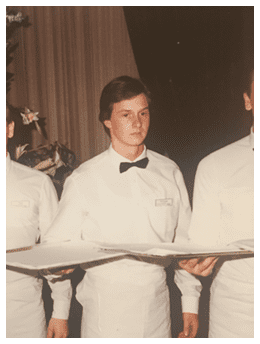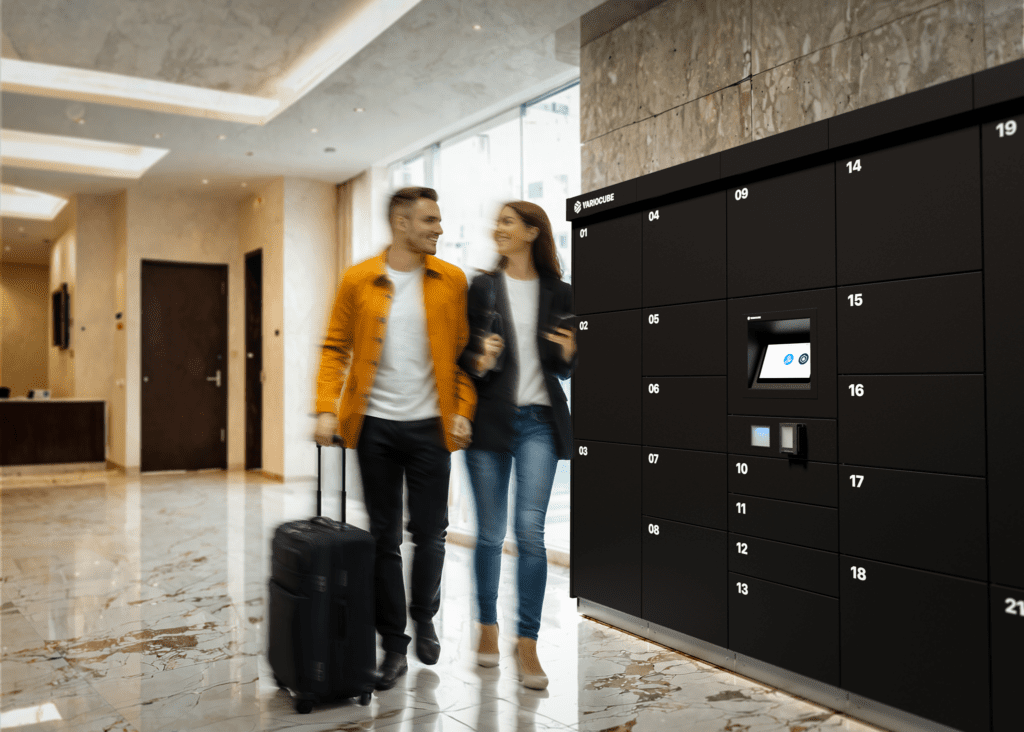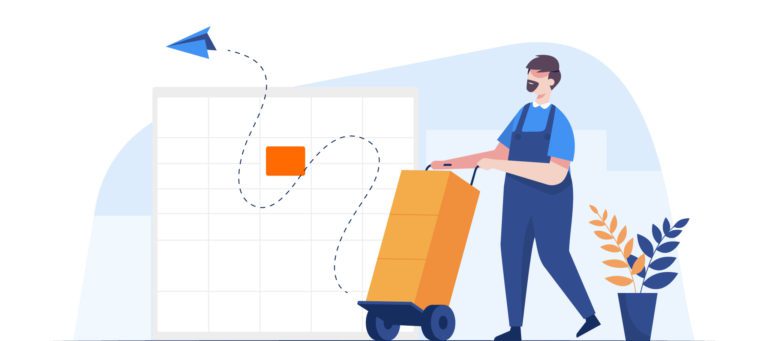Smart Locker & digital solutions for hotels: Interview with hospitality expert Michael Zager.
How can hotels deal with staff shortages, space problems and growing guest demand? In an interview with Variocube, Michael Zager, founder of HOSPITALITY360.de, explains why digital locker solutions (smart lockers) are becoming a game changer in modern luggage management. With over 30 years of experience in the industry, he shares specific examples and strategies for hotel automation and shows how hoteliers can use smart technologies to optimise processes and strengthen the service concept at the same time.
Variocube:
Mr Zager, you have had an impressive career in the hotel industry - from international hotel groups to founding your consulting company HOSPITALITY360.de. Can you briefly tell us how your passion for the hotel industry came about?
Mr Zager:
I would love to! Due to my childhood in Saudi Arabia and Turkey, characterised by my parents' professional work in the catering industry, I was fascinated by the world of service from an early age. After my training at Ramada in Frankfurt, I worked for renowned hotel groups such as Holiday Inn, Marriott, Wyndham and InterContinental. Since 2019, I have been supporting hotels with HOSPITALITY360.de in optimising hotel management and successfully implementing operational excellence and innovative service concepts.

Variocube:
Digitalisation is a central topic in your work. The hotel industry was long regarded as traditional - where do you see the most important changes brought about by digital solutions today?
Mr Zager:
The industry has caught up, especially with digital tools such as service apps, forecasting, revenue management systems and smart check-in solutions. The key here is not to introduce digitalisation simply for the sake of it, but to use it in a targeted manner to increase guest satisfaction and give employees more time for direct guest contact and service.
Variocube:
Many hotels are currently struggling with staff shortages. Do you believe that digitalisation can help to bridge this bottleneck?
Mr Zager:
Yes, but only if it is used wisely. Digitalisation should primarily take over routine tasks in order to relieve employees and free them up for real, personal service. However, if employees are reduced and digitised blindly, service quality will suffer.

Variocube:
Let's talk about a specific everyday problem that affects almost every hotel: baggage management. Where do you see the biggest challenges here?
Mr Zager:
Luggage management has actually been a chronic problem in many hotels for years. Architects and hotel operators often plan too little or no suitable luggage space because every square metre is used for directly revenue-generating areas such as rooms, restaurants or conference rooms. This often creates an organisational problem or confusion - luggage piles up behind the reception desk or in the back office. This not only causes disorganisation, but also security risks and makes employees' day-to-day work considerably more difficult.
A typical scenario: guests arrive at the hotel early in the morning, for example after a long flight from the Far East or America, and want to store their luggage securely until the room is ready - check-in is often only possible in the afternoon. Or they check out in the morning, but still have appointments, a trade fair visit or many hours until departure by train or flight and need a reliable and secure luggage solution. In hotels that are not well prepared for this, congestion and chaos regularly occur: suitcases get in the way, fall over or get lost, staff lose track of things and guests feel unsafe - this is a weak point in hotels worldwide.
Traditional lockers with keys or numerical codes, if they exist at all, cause further problems: keys get lost, combination locks are often damaged or don't work, lockers look unkempt and are sometimes even used by non-hotel guests. This regularly leads to security concerns and liability issues.
Variocube:
This is where smart lockers come into play. In your opinion, what are the advantages of such solutions for hotels and guests?
Mr Zager:
Smart Lockers, which guests book, pay for and use digitally, offer a safe, clean, independent and easy way to store luggage. Guests can store their luggage independently without having to involve staff. This significantly reduces the workload of hotel teams and at the same time increases guest satisfaction and a sense of security. Such systems also save space and can be used flexibly - ideal for hotels that are struggling with an acute lack of space.
Variocube:
Are there examples where Smart Lockers are already being used successfully?
Mr Zager:
Yes, such solutions are already being used in various places - for example in selected Flemings Group hotels, private hotels and flat blocks in Vienna that have successfully integrated Smart Locker into their service offering. We are currently in talks with other hotels and hotel groups. More on this in the next section.
Variocube:
What should hoteliers pay particular attention to when selecting and implementing such smart lockers?
Mr Zager:
The most important criteria are ease of use, security and a design that matches the standard of the hotel and the category. The lockers should also be well lit and visibly positioned so that guests immediately recognise how they can be used. An attractive and clear design prevents an undesirable "railway station flair" from developing.
So all you need is a few square metres in the hotel lobby, corridor or side area and a normal power socket to supply the digital billing unit and locking system.
Variocube:
What do you think of the idea of several hotels joining forces to use Smart Locker solutions together?
Mr Zager:
This is a very sensible idea, especially in cities with a high volume of day tourists or limited space. Innsbruck is a very good example. There are already several central locations in the city with Smart Locker solutions, for example in apartment buildings or shopping centres. These locations are used intensively by tourists and day visitors who are only in the city for a short time and want to store their luggage securely. Shared locations with local partners such as shopping centres or tourism organisations create additional synergies and make the solution even more attractive for everyone involved. In addition to the indoor version, there are also weatherproof outdoor facilities that can simply be set up securely next to the hotel entrance or in the car park.
Variocube:
Finally, a look into the future: How do you see digitalisation developing in the hotel industry over the next five to ten years?
Mr Zager:
I expect to see greater polarisation. There will be highly digitalised budget hotels where self-services dominate - without staff - and premium hotels that consciously focus on a high level of personal service. Hotels in the middle should make sure they use digitalisation specifically to improve service, exploit savings potential and optimise revenue in order to avoid being left behind.
Variocube:
In conclusion: What advice would you give hoteliers who are currently considering investing in smart lockers or similar digital solutions?
Mr Zager:
My advice is to be bold, but also to carefully consider whether the technology is customisable and reliable support is available. Well-integrated smart locker systems offer clear long-term cost savings, higher service quality, new revenue opportunities and greater guest satisfaction.
Variocube:
Thank you very much, Mr Zager, for the exciting insights and your valuable recommendations!
Mr Zager:
I would also like to thank you and hope that my experiences in this matter can help individual hoteliers, colleagues and the industry as a whole!



